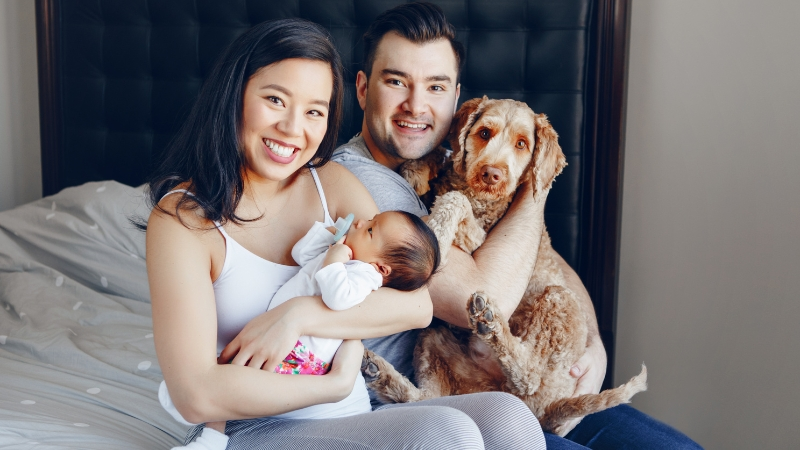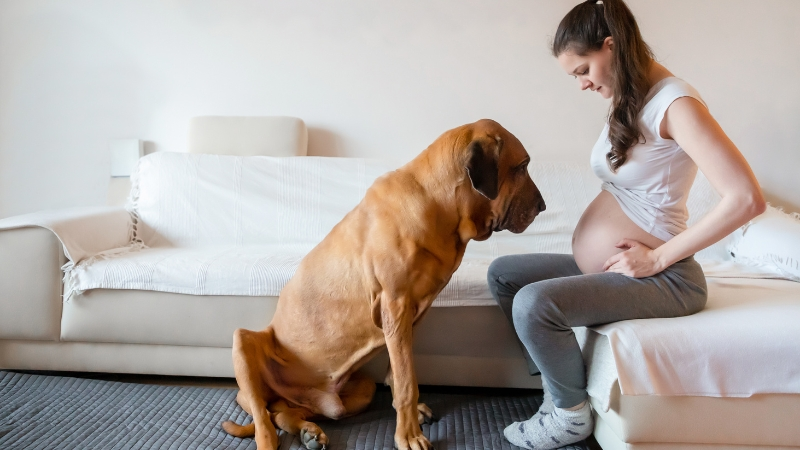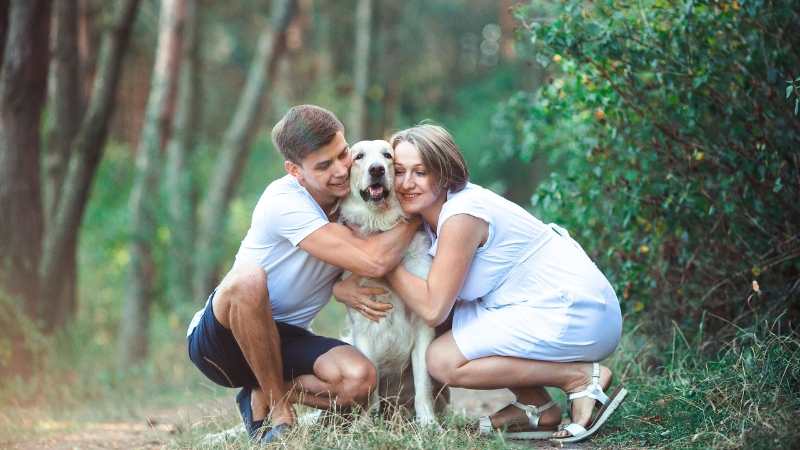Introduction: What is Pets over Parenting
Are you at a crossroads in life, debating whether to welcome a furry friend into your home or embark on the adventure of parenthood? It’s a decision that many individuals and couples find themselves pondering. In this blog post, we’ll delve into the considerations, joys, and challenges when pet owners choose Pets over parenthood. Let’s explore the factors that influence this decision and how it impacts the lives of those who make it. Lets discuss about pets companionship in life of individuals. According to Research done by Boise State University Pet owners are loving to become Pet Parents.
The Joys of Pet Companionship
A. Unconditional Love and Companionship
Furry Friends as Loyal Companions
Welcoming a pet into your home means opening your heart to a world of unconditional love and companionship. Unlike human relationships, pets don’t judge, hold grudges, or harbor resentment. They provide a unique bond that’s built on loyalty and affection. Your furry friend becomes a constant source of comfort, offering companionship through both good times and bad.
The Unique Bond Between Pet and Owner
The unconditional love of a pet can be particularly beneficial in times of stress or loneliness. They sense your emotions and offer a comforting presence, often reducing anxiety and providing a sense of security. The joy of coming home to a wagging tail or a purring cat can be immeasurable, creating a connection that transcends words.

B. Reduced Stress and Increased Happiness
The Therapeutic Benefits of Pet Ownership
Research has consistently shown the therapeutic benefits of pet ownership. The simple act of petting a cat or dog can lower blood pressure and release feel-good hormones like oxytocin. Pets contribute to a happier lifestyle by promoting physical activity, social interaction, and a sense of purpose.
How Pets Contribute to a Happier Lifestyle
Their playful antics and joyful demeanor can bring a smile to your face even on the gloomiest days. The responsibility of caring for a pet adds structure to your routine, creating a sense of fulfillment and accomplishment. In essence, the companionship of pets goes beyond the surface, positively impacting both mental and physical well-being.
C. Flexibility and Freedom
1. Traveling with Pets
One of the unique advantages of choosing pets over parenthood is the flexibility and freedom it affords. Pet owners have the freedom to travel with their furry companions, exploring new places without the constraints of childcare. Many find solace in the simplicity of a pet-centric lifestyle, where the needs of a four-legged friend complement their own.
2. The Freedom of a Pet-Centric Lifestyle
Whether it’s a spontaneous weekend getaway or an extended vacation, pets adapt to changes more readily than children, offering a different kind of adventure. The ability to structure your life around your pet’s needs creates a sense of freedom that resonates with those seeking a more flexible and spontaneous lifestyle.
In summary, the joys of pet companionship lie in the unique, unconditional love they offer, the stress-relieving benefits they bring, and the flexibility they provide for a lifestyle tailored to both human and animal needs. Choosing a pet is not just a decision; it’s an enriching journey into a world of shared moments and lasting connections.
Now Let’s have a look what is a parenthood and its influence in our life.
The Allure of Parenthood
A. Creating a Family Legacy
1. The Joy of Watching Your Family Grow
Parenthood is a profound journey marked by the creation of a family legacy. Watching your family grow and witnessing the development of your children into unique individuals is a joy that’s unparalleled. Parenthood introduces you to a world of firsts – the first smile, the first steps, and the first words. These milestones become building blocks in the foundation of a family legacy that lasts a lifetime.
2. Passing on Values and Traditions
Beyond the immediate joys, parenthood also offers the opportunity to shape and mold the next generation. Instilling values, passing on traditions, and creating a sense of continuity contribute to the larger tapestry of your family’s story. Parenthood becomes a journey of building a legacy that extends far beyond your own lifetime.
B. Emotional Fulfillment and Development
1. Nurturing Emotional Intelligence in Children
The emotional fulfillment that comes with parenthood is a unique aspect of the journey. Nurturing emotional intelligence in children becomes a central focus, as parents guide their little ones through the complexities of human emotions. The bonds forged between parent and child lay the foundation for a support system that lasts throughout life.
2. The Unique Bonds Between Parent and Child
Parenting challenges, while inevitable, also contribute to personal development. The resilience built through overcoming obstacles, the patience cultivated in moments of chaos, and the selflessness required in putting your child’s needs first are all aspects of personal growth that accompany the emotional fulfillment of parenthood.
C. Overcoming Parenthood Challenges
1. Balancing Work and Family Life
Parenthood comes with its share of challenges, but it’s often in facing these challenges that the most rewarding moments are found. Balancing work and family life is a common struggle, requiring a delicate dance between career aspirations and the responsibilities of parenting. However, the rewards of overcoming these challenges are immense – from the pride in witnessing your child’s accomplishments to the joy of seeing them overcome obstacles.
2. The Rewards of Facing Parenting Challenges
The journey of parenthood is a dynamic one, evolving as children grow and families adapt to changing circumstances. The challenges faced become opportunities for learning, adaptation, and strengthening the familial bonds that form the core of the parent-child relationship.
In essence, the allure of parenthood lies in the creation of a lasting family legacy, the emotional fulfillment derived from parent-child bonds, and the growth that comes from overcoming the challenges unique to parenting. It’s a journey marked by profound moments, personal development, and the joy of watching your family story unfold.
Factors Influencing the Decision: How to Be a Good Pet Parent
A. Lifestyle Considerations
1. Assessing Your Current Lifestyle
When contemplating the choice between pets and parenthood, assessing your current lifestyle is crucial. Pets thrive in various environments, but the level of commitment and attention they require may differ based on factors like living space, daily routine, and activity levels. Consider how your lifestyle aligns with the needs of both pets and potential children.
2. How Pets and Parenthood Align with Different Lifestyles
For those with active lifestyles, pets can be ideal companions, sharing in outdoor activities and adventures. On the other hand, a more settled routine may lend itself to the demands of parenthood. Understanding the dynamics of your lifestyle helps in making an informed decision that harmonizes with your daily reality.

B. Financial Implications
1. The Cost of Pet Ownership
Both pet ownership and parenthood come with financial responsibilities, and understanding these implications is crucial. Pets require ongoing care, including food, veterinary visits, and other essentials. Parenthood, on the other hand, involves additional expenses like education, healthcare, and overall child-rearing costs.
2. Budgeting for Parenthood
Consider your current financial situation and long-term goals when weighing these factors. Creating a budget that accounts for the potential costs associated with both paths will provide clarity on the financial aspects of your decision. Responsible planning ensures that you’re prepared for the financial responsibilities that come with either choice.
C. Long-Term Commitment
1. Lifelong Commitment to Pets
Choosing between pets and parenthood involves a significant long-term commitment. Pets often have shorter lifespans than humans, but the bond formed is enduring. The decision to bring a pet into your life implies a commitment to their well-being throughout their lifespan.
2. Parenthood as a Lifelong Journey
Parenthood, on the other hand, is a lifelong journey, with responsibilities evolving as children grow. From the early years of hands-on care to the support needed during adolescence and beyond, the commitment to parenting spans decades. Understanding the duration and nature of these commitments is essential in making an informed decision aligned with your capacity for sustained care.
In conclusion, lifestyle considerations, financial implications, and the understanding of long-term commitments play pivotal roles in influencing the decision between pets and parenthood. Taking a thoughtful approach to these factors ensures that your choice aligns with your current circumstances and sets the foundation for a fulfilling and sustainable journey.
- For more details Check it Information of Pet Ownership.
- For more details Check This article Advantages and Disadvantages of Pets in Our Life.
Real Stories: Owners Who Chose Pets Over Parenthood
A. Personal Testimonials
Embarking on the journey of choosing pets over parenthood is a decision that resonates with many individuals and couples. Let’s delve into personal testimonials from those who have opted for the companionship of four-legged friends and the unique joys it brings.
1. The Solo Explorer:
Meet Sarah, a young professional with a passion for travel and adventure. Sarah chose to adopt a dog instead of starting a family, citing the freedom and flexibility it provides. “My furry companion has been with me through countless journeys, and the bond we share is irreplaceable. I cherish the ability to explore the world with my loyal friend by my side.”
2. The Empty Nesters’ Choice:
John and Karen, empty nesters after their children left for college, decided to welcome a pair of cats into their home. “Having pets keeps our home vibrant and filled with love. It’s a different kind of parenting, and the joy of caring for our feline friends has brought a new chapter of happiness into our lives.”
B. Exploring Stories of Individuals Who Opted for Pet Companionship
1. The Healing Power of Canine Companionship:
David, a military veteran, found solace in the companionship of a service dog after experiencing trauma. “My dog became my anchor, helping me navigate through challenging times. The unconditional support and understanding he provides are beyond words. He’s not just a pet; he’s my lifeline.”
2. Fostering a Sense of Community:
Jennifer, a community advocate, chose to foster dogs in need rather than pursuing parenthood. “Fostering allows me to make a positive impact on the lives of animals in need. It’s a fulfilling way to contribute to the community while enjoying the joys of pet companionship.”
C. The Unique Paths to a Fulfilling Life Without Parenthood
These personal testimonials highlight the diverse paths individuals take when choosing pets over parenthood. Each story reflects a unique journey, emphasizing the fulfillment, joy, and sense of purpose that comes from building meaningful connections with pets. These narratives inspire a deeper understanding of the profound impact that choosing pet companionship can have on one’s life.
Striking a Balance: Are pet owners better parents?
A. Navigating Dual Responsibilities
For those who find themselves torn between the joys of pet companionship and the allure of parenthood, the question arises: Can you have both? Striking a balance between these dual responsibilities is not only possible but can also be incredibly rewarding.

1. Pet Parenting Tips: How To be a good Pet Parent
- Establishing Routine: Creating a well-defined routine for both pets and children can help maintain stability in the household.
- Shared Responsibilities: Involving family members in the care of both pets and children fosters a sense of teamwork and shared commitment.
- Quality Time: Carving out dedicated quality time for both pets and children ensures that each receives the attention they need.
2. The Unique Joys of Raising Children with Pets:
- Companionship and Comradery: Growing up with pets provides children with valuable lessons in empathy, responsibility, and companionship.
- Building Bonds: The relationships formed between children and their furry friends can be profound, contributing to emotional development.
- Learning Life Skills: Caring for pets teaches children important life skills, such as compassion, patience, and a sense of duty.
B. The Fulfillment of a Blended Lifestyle
Blending parenthood with pet ownership offers a unique and fulfilling lifestyle that combines the joys of raising a family with the unconditional companionship of furry friends. Many families find that having both pets and children creates a dynamic household filled with laughter, love, and shared experiences.
Understanding the needs of both pets and children is essential in maintaining a harmonious balance. Whether it’s teaching children to care for their pets or ensuring that each family member contributes to the well-being of both, the blended lifestyle emphasizes the integration of pets as valued members of the family unit.
In conclusion, the question of whether you can have both pets and parenthood is met with a resounding “yes.” By navigating dual responsibilities with thoughtful planning and embracing the unique joys of a blended lifestyle, individuals and families can experience the best of both worlds. It’s a journey marked by shared moments, mutual growth, and the enriching experience of building a family that includes both human and furry members.
Pet Parenting Trends across the world
In recent years, there has been a consistent upswing in pet ownership across Australia. According to data from 2019 to 2021, the percentage of Australian households embracing pet companionship has risen commendably, surging from 61 percent in 2019 to an impressive 69 percent in 2021. This notable increase suggests a growing inclination among households to welcome pets into their lives.
The surge in pet adoption is further emphasized by the numerical expansion of the pet population in the country. In 2019, the total number of pets in Australia was reported to be 28.5 million, and this figure has risen to 30.4 million by 2021. This statistically significant increase underscores the evolving role of pets as integral members of Australian households.
For more comprehensive insights into the dynamics of pet ownership trends in Australia and around the world, refer to the detailed guide provided by Petsecure.
Reference: A Guide to Worldwide Pet Ownership by Petsecure

The Latest Pet Ownership Statistics for 2024
The latest pet ownership statistics reveal fascinating insights into the global landscape of companion animals. The United States stands out as the leading country for pet ownership, boasting around 70 million domestic dogs and 74 million domestic cats. The American affection for pets transcends basic care, with pet owners indulging in professional photos, birthday celebrations, and designated living spaces for their furry friends.
Brazil secures the second position globally for dog ownership, with approximately 35 million domestic dogs. While the population density results in a lower number of dogs per capita compared to other countries, Brazil’s significant middle-class growth has contributed to a surge in pet ownership.
For exotic animals, Brazil takes the lead, boasting the largest number of species considered pets. The diverse ecosystem in the Amazon basin contributes to Brazil’s unparalleled variety of insects, birds, fish, and mammals. However, the country also faces challenges, with many stray animals roaming the streets due to abandonment.
In terms of cat ownership, China emerges as a notable contender, ranking second globally with around 53 million pet cats. Despite briefly surpassing the United States in 2019, China’s pet industry growth has been remarkable, reflecting a shifting cultural perspective, particularly among younger generations more open to the idea of pet ownership. These statistics underscore the diverse dynamics of pet ownership, influenced by cultural, economic, and ecological factors unique to each country. For more comprehensive insights refer World Population Review.
Frequently Asked Questions
Does having a pet make you a better parent?
While having a pet can teach responsibility, empathy, and routine, it doesn’t inherently make someone a better parent. It depends on individual circumstances and the ability to balance pet care with parenting duties.
What is the difference between a pet owner and a pet parent?
The terms are often used interchangeably, but some prefer “pet parent” to emphasize a more nurturing and familial relationship with their pets, reflecting a shift in societal attitudes towards viewing pets as family members.
Do people prefer pets over children?
Preferences vary, and individuals may choose pets for various reasons like lifestyle, time commitments, or personal preferences. It’s subjective, and some people find joy and fulfillment in both pet and parenthood.
Is losing a pet like losing a child?
The grief experienced varies, but losing a pet can be emotionally impactful. The intensity of the loss is subjective, influenced by the bond formed and individual perspectives on the role of pets in one’s life.
Does having a pet make you a better parent?
While having a pet can instill valuable qualities like responsibility and empathy, it doesn’t automatically make someone a better parent. Parenting and pet ownership involve distinct responsibilities, and improvement in one doesn’t necessarily translate to the other.
Why do Parents hate pets?
Reasons vary and can include allergies, time constraints, or differing attitudes towards pet care. Some parents may prioritize different aspects of family life and choose not to have pets.
Dog Parent Vs Human Parent?
While the terms are used humorously, distinctions lie in the nature of care. Dog parents care for pets, focusing on companionship and basic needs, while human parents nurture and guide children through complex developmental stages, education, and life choices.
Do pet owners consider pets as family members?
Yes, many pet owners view their pets as family members, forming strong emotional bonds and providing care akin to that of family. This perspective is increasingly common, reflecting evolving attitudes towards the role of pets in households.
Is it morally right to own a pet?
Morality in pet ownership is subjective. Responsible ownership, prioritizing well-being, and meeting needs align with ethical practices. However, debates exist regarding breeding, exotic pets, and ethical considerations, making it a nuanced ethical discussion.
What are owners of pets called?
People who care for and look after pets are commonly referred to as “pet owners.” Additionally, some prefer the term “pet parents” to emphasize a more nurturing relationship with their animals.
What do pet owners call their pets?
Pet owners often give their pets names, which can range from traditional names to creative and playful ones. The names reflect the unique bond and personality of each pet.
Which country has the highest rate of pet ownership?
The United States has consistently shown the highest rate of pet ownership, with a significant number of households having domestic dogs and cats. Other countries, such as Brazil and China, also have substantial pet populations, reflecting diverse cultural attitudes towards pet companionship.
Conclusion For Do Owners Choose Pets Over Parenthood
Ultimately, the choice between pets and parenthood is deeply personal. It’s about understanding your values, lifestyle, and priorities. Whether you choose the pitter-patter of little feet or the patter of paws, both paths offer unique joys and challenges. So, as you embark on this decision-making journey, remember that the most important thing is to choose the path that brings you fulfillment and happiness. After all, it’s your unique journey, and there’s no one-size-fits-all answer. If you really like to be a pet parents and if you love dogs as pets then you must read about what are the reason why dogs might avoiding you.

4 thoughts on “Do Pet Owners Choose Pets Over Parenthood: The Complete Study”